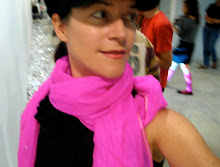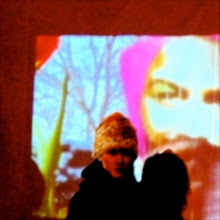
Getting somewhere with this last trek up Huashan. Perhaps it was obvious from the beginning, but I don't remember picking the mountains based on location. In any case I did intuitively somehow opt for the eastern most and western most of the sacred Taoist mountains of China. Had I thought about it before I would have thought of the sun. I'm sure. Taishan was birth from the research early on, but for some reason Huashan eluded me and my research assistants. Once there it hit me. so obvious. The mountain is constantly referred to as the most dangerous in china, the dwelling place of the gods, of the five immortals, a place pilgrims go to seek immortality. Huashan is the west. the setting sun. Taishan the east, the sunrise. Taishan is birth and the bloodline and king-line of china. Huashan is death.
The trek up was gorgeous. lonely. solo. precarious. rainy, cold. by the time I reached the midpoint where the majority of the 'pilgrims' start from the cable cars, I was wet with sweat and drenched by the rain. Unlike Taishan where there are regular covered rest spots and cafes and even hotels and restaurants, Huashan was (although crowded) without a dry place to sit and get warm.

I walk fast and compete when there is a slope. I had pushed myself hard and really needed a place to dry off and warm up while I waited for my students and family. Instead I sat in the rain and my body warmth quickly turned to extreme chill. I waited for 50 minutes and by the time they arrived on the cable cars I was shaking and chattering and as close to hypothermia as I've ever been. I had to descend. It was on my cable car decline that I had the space to reflect on the nature of the mountain (Kaatje was on my lap warming me up). It was then that death and the west and the setting sun hit me. so obvious. what else is seeking immortality but a wishful attempt to avoid death? The death mountain.


Travel: the word travel has a common origin with the word travail. Once upon a time, travel was exceedingly uncomfortable and often dangerous. Indeed, the ultimate source of the word 'travel' is a medieval instrument of torture - the trepalium - a contraption would pierce its victim's flesh with three sharp stakes (tres 'three' and palus 'stake'). The trepalium became a verb, trepaliare, which meant any form of torture. From torture to the Old French concept of travailler - or 'putting oneself to pain or trouble. Travailler came to mean 'work hard' in French. English borrowed the word as 'travail' and this, in turn, was used to describe a wearisome journey - travel.
ReplyDeleteThe French language, on the other hand, never regarded travel with quite the same sense of discomfort as did English. Voyager - to travel - comes from the Latin via, or 'way'.
working hard along the way. these are Taoist mountains where it is all about 'the way'. Signs posted here and there that there is only one way up. And others to stay focused and not notice the view (for fear of death).
ReplyDeletethey say in Chinese that to climb a mountain is to seek enlightenment. and the group experience of the pilgrimage upwards is an odd communal self inflicted torture. The clarity and horizon can only be appreciated through the work.
I loved going at it alone. my solitary torturous way. it is the hermit mountain anyway.
Hey Astrid. I love this post. The two mountains, your travail/travels/ -- metaphors for the whole thing. Life death birth, adulthood, teaching, learning. I love knowing you're out there doing all this, somehow, like a gift for the rest of us who can't. I love that Kaatje's body warmed her shivery chattering mother on the way down, as you descended by cable though you ascended by foot. And today I am finishing up writing a particular review of a particular person whom I admire -- and so trolling the blog/internet/stridi world... xox L.
ReplyDelete